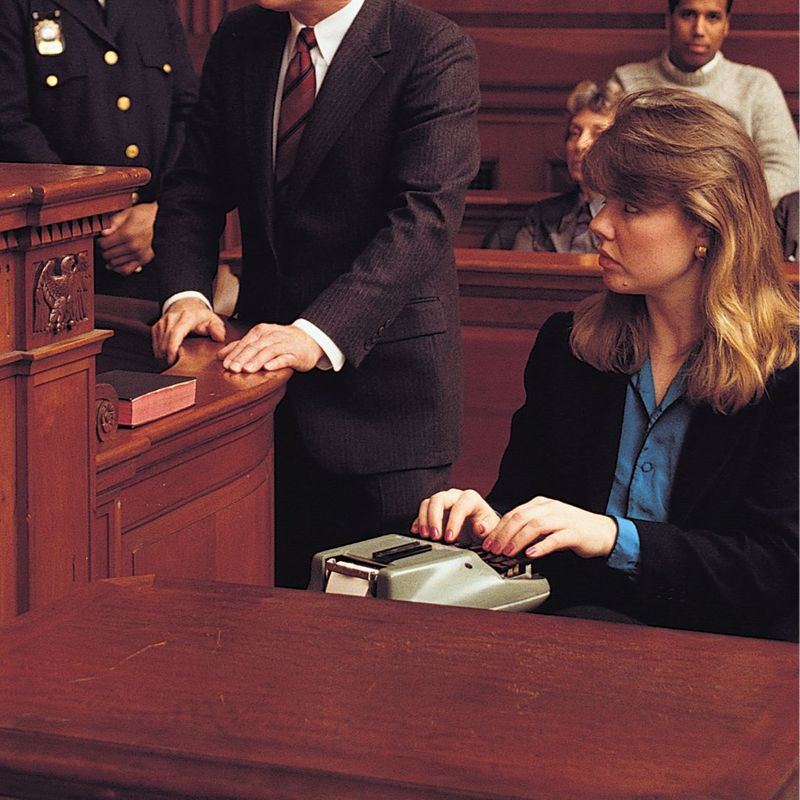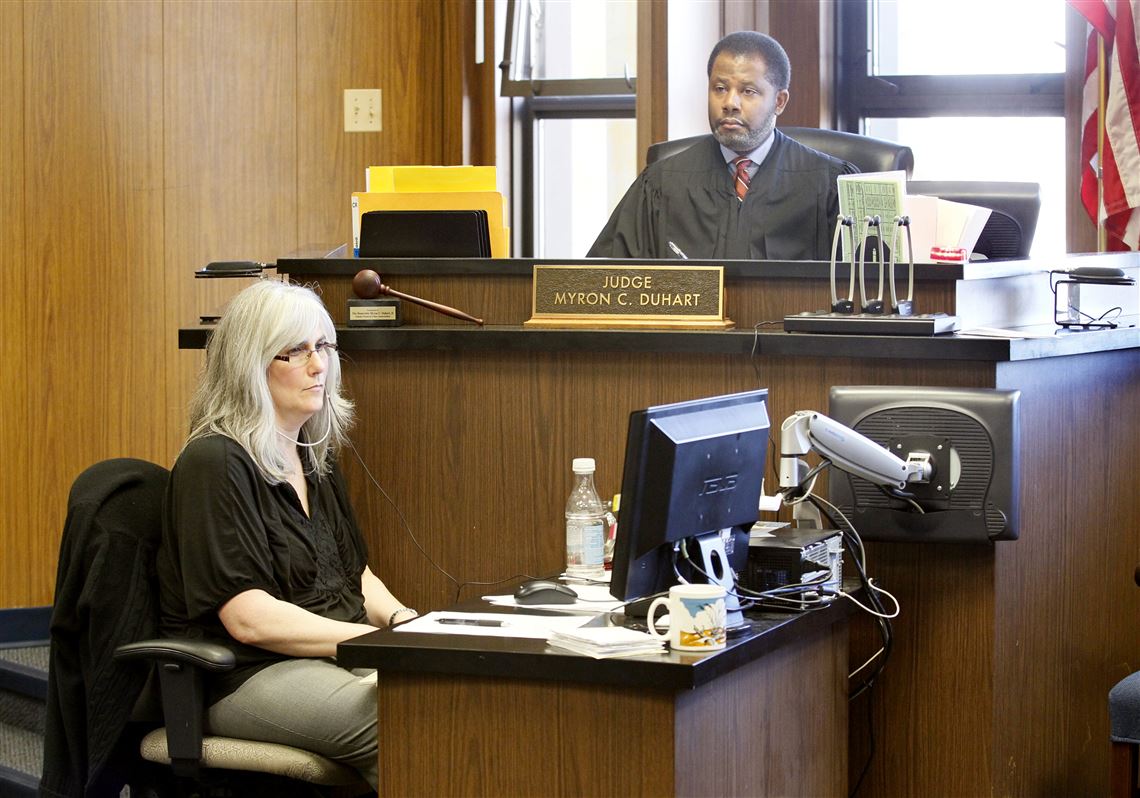All About Court Reporting: Essential Insights Into Its Relevance in Regulation
Court reporting offers an essential function within the legal framework, offering a trusted and exact document of process. Via sophisticated techniques and tools, court press reporters record the subtleties of testaments and lawful discussion. The significance of their job prolongs beyond plain transcription. As the lawful landscape advances, so also does the duty of innovation in court reporting. Recognizing these characteristics reveals much deeper ramifications for justice and transparency in the lawful system.
The Role of Court Reporters in the Legal System

Often forgotten, court reporters play an important function in the legal system by making sure a precise and verbatim record of procedures. Their key obligation entails transcribing talked words during tests, depositions, and various other lawful events, which offers as an official document for future referral. This documents is essential for appeals, as it offers the needed details for evaluating decisions made by judges and courts.
Court press reporters should have outstanding listening skills and a deep understanding of legal terms to capture the nuances of statement and argumentation accurately. Their job contributes to openness within the judicial procedure, enabling liability and fairness. In addition, they facilitate access to justice by making records readily available to involved parties, guaranteeing that everyone has the opportunity to review the process. By doing this, court press reporters copyright the stability of the lawful system, strengthening the importance of accurate interaction in issues of legislation.
Methods and Devices Used in Court Reporting
In court reporting, numerous techniques and tools enhance the precision and efficiency of transcription. Stenography technology plays a substantial duty, permitting press reporters to catch talked words swiftly, while electronic recording methods supply alternate services for documentation. Recognizing these tools is necessary for realizing just how stenotype reporter meet their critical feature in the lawful system.
Stenography Technology Introduction
Stenography innovation functions as the cornerstone of modern court reporting, making it possible for effective and exact transcription of spoken dialogue. Making use of specialized equipments referred to as stenographs, stenotype reporter can capture speech at amazing speeds, often going beyond 200 words per minute. These machines use a distinct key-board format that allows multiple secrets to be pushed concurrently, producing phonetic representations of words - durham court reporting. This approach lessens the need for extensive punctuation and enhances transcription accuracy. Additionally, clerks use various shorthand strategies and icons to further simplify the process, making certain that no detail is ignored during proceedings. The assimilation of stenography innovation not just promotes effective interaction in legal settings however likewise supports the honesty of the judicial procedure by giving accurate and reliable documents of discussions
Digital Recording Techniques
A raising variety of court reporting professionals are turning to electronic recording approaches to enhance the precision and performance of their transcriptions. These methods use advanced audio and video modern technology to catch proceedings in real-time. Digital recorders, commonly combined with high-quality microphones, assure that every word talked is maintained with clarity. Additionally, specialized software program can record audio files automatically, enabling quicker turnaround times. Some specialists integrate twin recording systems for redundancy, assuring no critical info is lost. In enhancement, digital recordings can be quickly indexed and browsed, helping with speedy access of certain segments. As lawful environments progress, welcoming these electronic tools not only simplifies the reporting procedure yet likewise maintains the integrity of the record.
The Importance of Accuracy in Transcription
Precision in transcription is essential in court reporting, as it ensures that lawful documents show the real content of proceedings. This precision can greatly affect situation results, affecting the choices made by courts and courts. Maintaining high standards of accuracy is extremely important in the lawful career.

Precision in Lawful Records
Although the lawful system depends heavily on significant disagreements and influential unsupported claims, truth foundation of judicial process exists in the accuracy of lawful records. Precise transcription is vital, as it assures that every concern, judgment, and statement is recorded properly. Such accuracy serves several objectives, consisting of supplying a trustworthy reference for allure processes and keeping the stability of the judicial system. Mistakes in transcription can result in misconceptions, misconceptions, and possibly harmful consequences for all events involved. Court reporters need to have outstanding skills and focus to detail, as their job directly influences the quality of legal files. Eventually, the precision of legal records underpins the depend on positioned in the judicial procedure, enhancing the value of thorough transcription.

Impact on Situation Outcomes
When legal process unravel, the accuracy of transcription usually dictates the trajectory of an instance's result. Precise court reporting guarantees that every word talked is successfully caught, enabling juries, lawyers, and judges to make educated decisions based on the document. Errors in transcription can cause misconceptions, misconceptions, and possibly unfair judgments. The stability of legal files relies greatly on the accuracy of these documents, as they function as the foundation for allures and more lawsuits. In high-stakes cases, where the implications are profound, the function of a stenotype reporter becomes a lot more critical. Therefore, maintaining strenuous requirements in transcription not only sustains the legal process however additionally supports the concepts of justice and fairness in the court.
Court Reporting in Various Legal Settings
Court reporting plays a crucial function throughout different legal settings, ensuring that proceedings are precisely documented for future referral. In criminal court, court reporters record statements, proof, and judicial rulings, which are vital for allures and situation reviews. In civil litigation, exact records promote the discovery procedure and provide a reliable document for test procedures. Administrative hearings usually rely on court reporters to preserve a main document, guaranteeing transparency and liability in governmental processes. Family courts additionally benefit from court reporting, as precise documents of process can affect custodianship choices and settlements. In addition, depositions in pre-trial phases call for precise recordings to catch the nuances of witness testimonies, which may be considerable fit case methods. Generally, court reporting works as a keystone in the legal system, fostering fairness and clearness across diverse judicial atmospheres.
The Effect of Modern Technology on Court Reporting
As technology continues to evolve, its influence on court reporting has actually ended up being significantly substantial. Innovations such as electronic recording, real-time transcription software, and synthetic intelligence have transformed traditional methods. Digital audio recorders currently record court room process with amazing clearness, permitting stenotype reporter to concentrate on subtleties and context instead of entirely on inputting. Real-time transcription innovations enable immediate accessibility to transcripts, promoting efficiency and boosting cooperation among legal professionals. Additionally, fabricated knowledge tools are being integrated to aid in the transcription procedure, decreasing human mistake and expediting file generation. Despite these improvements, the important skills of court press reporters stay important, as they supply a nuanced understanding of lawful language and court room characteristics. Ultimately, modern technology matches as opposed to changes the experience of court press reporters, making certain that the stability and accuracy of lawful documentation are promoted in a progressively electronic landscape.
Profession Opportunities and Pathways in Court Reporting
The advancement of innovation in court reporting has actually opened up a range of career chances for aiming experts in the area. Generally, court press reporters were mostly in charge of recording lawful proceedings. Advancements such as digital recording and real-time reporting have actually increased their functions.
Today, court press reporters can specialize in areas such as captioning about his for transmission, offering transcription services for lawful companies, and operating in the corporate sector for meetings or depositions - durham court reporting. Furthermore, chances in remote reporting, especially as a result of the rise of online courtrooms, have become increasingly prevalent
Educational pathways consist of official training programs, certification programs, and proceeding education to stay upgraded with technical adjustments. Networking within legal and specialist companies likewise plays a significant function in occupation advancement. In general, the diverse chances in court reporting show the dynamic nature of the legal profession and the raising demand for proficient experts.
The Future of Court Reporting in an Evolving Legal Landscape
Exactly how will the function of court reporting adapt as the legal landscape remains to advance? As modern technology developments, court reporting is most likely to embrace innovative tools such as synthetic intelligence and real-time transcription software. These advancements might boost accuracy and efficiency in recording legal process. The raising occurrence of remote hearings necessitates that court press reporters end up being adept in electronic platforms, making sure smooth documentation no matter of location.
All at once, stenotype reporter will require to adjust their abilities to handle new sorts of cases, such as those including cyber regulation and intellectual building disputes, which require specialized expertise. Furthermore, the need for instantaneous access to transcripts will certainly press experts to deliver quicker turn-around times without jeopardizing high quality. Inevitably, the future of court reporting will hinge on a balance between conventional skills and technological assimilation, ensuring that the honesty of the legal procedure remains undamaged in an increasingly electronic globe.
Regularly Asked Concerns
Just How Do Court Press Reporters Take Care Of Delicate Info Throughout Process?

What Credentials Are Required to Become a Court Reporter?
To come to be a court press reporter, people generally need a high school diploma, specialized training from a certified program, proficiency in shorthand or voice writing, and certification or licensure, depending on state needs and laws.
Are Court Reporters Required to Have a License?
Court reporters are frequently required to get a certificate, depending on the jurisdiction. Licensing warranties that they meet particular standards of effectiveness and professionalism and reliability, which is important for maintaining the honesty of lawful procedures.
Just How Do Stenotype Reporter Take Care Of Various Accents and Dialects?
Court reporters take care of various accents and dialects through comprehensive training, technique, and familiarity with different speech patterns. They typically use specialized software and strategies to precisely capture talked words, ensuring quality and accuracy in their records.
What Is the Typical Wage for a Stenotype Reporter?
The ordinary wage for a stenotype reporter varies by location and experience, commonly varying from $50,000 to $80,000 annually. In high-demand areas, wages can surpass $100,000, mirroring the profession's value and specialized abilities.
Commonly overlooked, index court reporters play a vital function in the legal system by making certain a exact and verbatim record of procedures. In criminal court, content court reporters transcribe testaments, proof, and judicial rulings, which are essential for charms and case testimonials. Family members courts also benefit from court reporting, as exact documents of proceedings can influence guardianship decisions and negotiations. Commonly, court press reporters were primarily responsible for recording lawful process. Today, court reporters can specialize in areas such as captioning for television programs, providing transcription services for legal firms, and working in the business market for depositions or meetings.